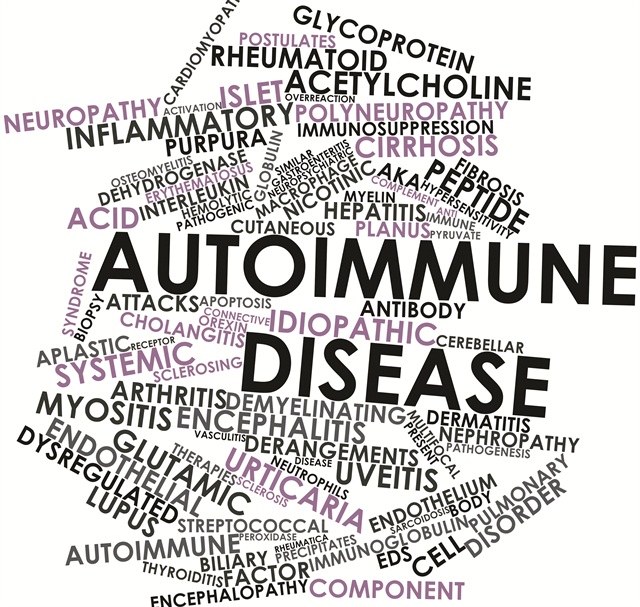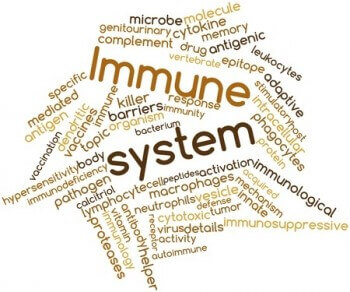
(image from chicagonow.com)
In a world dominated by medical practices designed to treat symptoms and never the cause, I wanted to take a moment to debunk some myths and help you safely and intelligently take as much control of your own health as you can when it comes to autoimmune disease. The human body’s resilience never ceases to amaze and fill me with wonder. It fuels my drive to deepen my understanding of our inner workings. There is definitely a time and a place for medicinal drugs, surgeries and other treatments but this article focuses on what you can do personally.
There’s so much misinformation out there, unfortunately a lot of it trained to keep you filling up lines at your local pharmacy, sitting in waiting rooms, and so on. You work too hard to throw all your income at your health when, many times, it isn’t helping you overcome the cause. So let’s take a look at the top five myths.
Myth #1
Autoimmune Disorders Can’t Be Reversed
Yes, there are genetic factors that play in, but something has to trigger the autoimmune disorder to develop, like an environmental or dietary factor. Even if a disease has taken its toll on certain systems, like in the case of Type I diabetes or advanced Rheumatoid arthritis, there are things you can do to help live a healthier life and work to stop further progression.
Truth
Eating well, taking measures to ensure a healthy gut (your second immune system), and managing stress all can help eliminate the disease or, at a minimum, slow it down. So many people jump to the conclusion that, once you develop an autoimmune disease, you’re doomed to an unhealthy life for the rest of your days. So long as you make the right choices and take the right steps, such a fate simply is not true.
Myth #2
Medications are the Only Way to Treat Autoimmune Disease
So many people take medications that come with steep risk-versus-benefit factors. Medical professionals are taught that this is the norm when it comes to treatment and we are bombarded with television ads enforcing this way of thinking. Some of us remember when it was illegal to advertise drugs on TV. While drugs and surgeries have their place, the truth is you were not drug deficient in order to caused the disease.
Truth
Rolling the dice on your health isn’t how it has to be. Nutrition and proper supplementation are far safer and more lasting approaches that, many times, can be done as a standalone treatment or at least as an aid. You have to weigh the risk-versus-benefit with drugs, and only you and your doctor can do that, but eating healthier, digesting your food, and proper movement only has benefits to your health.
Myth #3
Your Gut Plays No Role in Autoimmune Disease
It’s easy to understand the misconception. Your gut seems like it’s just for digesting food. But that’s the thing: you get all your fuel from food. How well you eat directly affects how healthy you are. Your gut flora are responsible not only for keeping large pathogenic particles out of your system, they are also responsible for the creation of vitamins, enzymes and powerful natural antibiotics.
Truth
As I mentioned in myth #1, your gut IS your second immune system. All of us have about 3 lbs. of friendly bacteria helping and protecting us from within our gut. What we eat directly affects their ability to fight off harmful invaders that would otherwise destroy our health. If the flora can keep things tight and efficient, then fewer larger proteins can get into the blood and trigger autoimmune diseases.
Myth #4
Autoimmune Disease Are Purely Genetic
There’s that section in your medical profile that takes note of your family medical history. How good do you feel checking off all the boxes and listing who suffers from what? How hopeful does it make you feel?
Truth
Genetics play only a minor part–roughly 25%. In fact, having a family history of one disease or another points you to what steps to take to make sure you’re not the next generation to suffer with it. That other 75% of factors is up to you.

(image from chinesemedicineliving.com)
Myth #5
There’s Nothing You can do to Help Your Immune System
There’s this belief that you can’t boost your immune system, that it’s either functioning as it should, or it’s not due to lack of sleep, nutrient deficiencies, diet, etc.
Truth
The opposite of weaken is strengthen. You CAN boost an immune system beyond a standard baseline. Autoimmune diseases strike during a moment of health weakness. However, things don’t have to stay that way. There are things you can do to strengthen your system back up and take control of your health, and there are steps you can take to minimize your risk of dease.

(borrowed image)
The #1 Thing to Keep Your Immune System Strong
There are many things you can do but the best place to start is with eating fresh non processed food and properly digesting that food. This ripples into how healthy your gut flora is, to how many nutrients make it to the rest of your body, to how well every last cell functions, and so on. This means, even if you do grab a fast food meal, instead of something more nutritious, and if you make sure enough digestive enzymes are present to break the food down into something usable pieces, your body can turn it into fuel.
Eating well is always recommended. You are what you eat. If you eat healthy, your body will be healthy. If you eat fatty junk, well, your body will be just that.
To further ensure proper digestion, aid digestive enzymes with a regular dose of probiotics and antioxidants. Probiotics excel at helping your gut flora stay healthy and balanced. Antioxidants protect you at the molecular level from cellular damage, thus help fight off disease, including autoimmune disease.
The combination of eating non processed GMO free foods and ensuring they are digested with enzymes and probiotics is the key. High antioxidant foods or a powerful blend can help strengthen the cells so they are more resistant to damaging molecules. Combining Optimal 1 Digestion along with Optimal Fruit & Veggie Plus can be a powerful one-two punch in helping you fight the ravages of auto immune disease.
